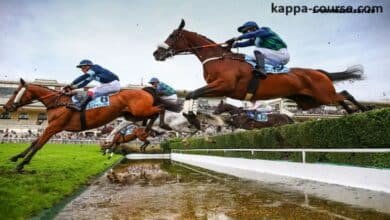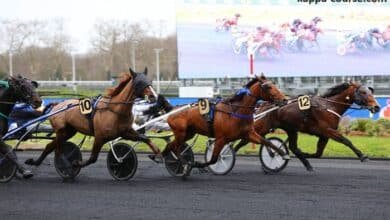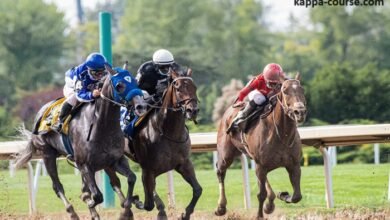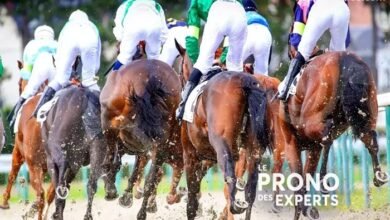Exploring the Thrill and Tradition of Courses de Chevaux Horse Racing
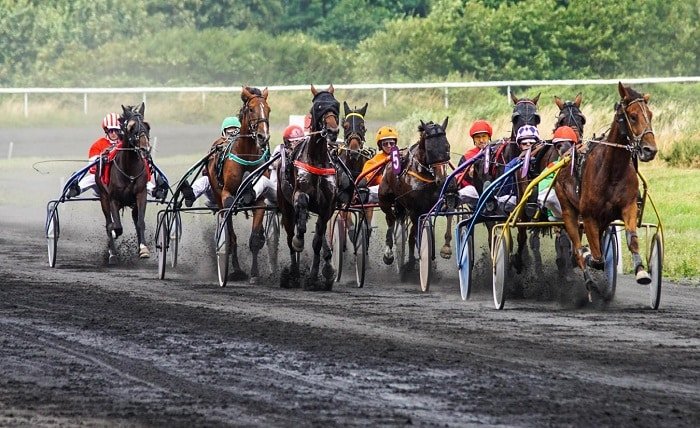
The world of “courses de chevaux,” or horse racing, combines ancient traditions with modern excitement. As one of the oldest sports, it offers a unique blend of history, culture, and adrenaline. This blog post delves into various aspects of horse racing, from different race types and famous tracks to betting tips and the impact of technology.
History of Horse Racing
The tradition of horse racing dates back thousands of years, evolving from simple chariot races in ancient civilizations to the sophisticated “courses de chevaux” we know today. Key historical milestones include the establishment of standardized rules and the development of iconic races that have become annual cultural phenomena.
Types of Horse Races
Horse racing features several types of races, each with its unique set of rules and challenges. The most common are flat racing, steeplechase, harness racing, and endurance races. Each type tests different aspects of a horse’s ability and the jockey’s skill, making “courses de chevaux” a diverse and dynamic sport.
Major Horse Racing Events
Globally, certain events stand out in the horse racing calendar, such as the Kentucky Derby in the USA, The Grand National in the UK, and the Melbourne Cup in Australia. These events not only highlight the pinnacle of “courses de chevaux” but also attract massive international audiences.
Horse Racing Terminology
To fully appreciate “courses de chevaux,” it’s crucial to understand the specific terminology used. Terms like “furlong,” “handicap,” “maiden race,” and “stake races” are integral to grasping the nuances of different races and betting strategies.
The Role of Jockeys
Jockeys are central to the success of “courses de chevaux.” Their skill and connection with the horse can significantly influence the outcome of a race. This section explores the training, strategies, and risks faced by jockeys in horse racing.
Horse Breeds and Racing
Certain horse breeds excel in “courses de chevaux,” with Thoroughbreds being the most prominent in flat racing. Other breeds, like Arabians and Quarter Horses, dominate endurance and sprint races, respectively. Understanding breed characteristics can enhance one’s appreciation of the sport.
Training for Horse Racing
Training a racehorse is a complex, nuanced process that begins from a young age. This section explains how trainers prepare horses for “courses de chevaux,” focusing on physical conditioning, mental training, and dietary needs.
Betting on Horse Races
Betting is a fundamental aspect of “courses de chevaux,” involving various wager types like win, place, or show, and more complex bets such as exactas and trifectas. Effective betting strategies can enhance the race day experience and increase the chances of winning.
The Economics of Horse Racing
Horse racing is not only a sport but also a significant economic activity. This part explores the financial dynamics of “courses de chevaux,” including prize money, breeding, and the costs associated with training and maintaining racehorses.
Technology in Horse Racing
Technological advancements have transformed “courses de chevaux,” from improvements in track safety and horse care to betting processes. Innovations like race simulcasting and online betting are particularly noteworthy, significantly impacting how fans engage with the sport.
Controversies and Ethical Considerations
While “courses de chevaux” is a beloved tradition, it’s not without its controversies. Issues such as horse welfare, the use of performance-enhancing drugs, and the integrity of betting systems are critical concerns that need addressing to preserve the sport’s integrity.
The Future of Horse Racing
The future of “courses de chevaux” looks promising yet challenging. With growing awareness about ethical issues and the potential for further technological enhancements, the sport must adapt to continue thriving in a changing world.
Conclusion
“Courses de chevaux” offers a fascinating glimpse into a world where tradition and modernity coexist seamlessly. From the thunderous applause of the crowds to the strategic bets placed on race day, horse racing remains a testament to human skill and animal prowess. As we look to its future, it’s clear that while the sport will evolve, the excitement and passion that define it will undoubtedly endure.
FAQs
Q1: What is the best way to start betting on “courses de chevaux”?
A1: Start by understanding the basics of horse racing types and betting terms, then gradually progress to more complex bets as you gain confidence and experience.
Q2: How are racehorses trained for “courses de chevaux”?
A2: Training involves a combination of physical conditioning, practice races, and mental training to prepare horses for the rigors of competitive racing.
Q3: What measures are in place to ensure the welfare of horses in racing?
A3: Regulations vary by country but generally include standards for race conditions, veterinary care, and retirement practices to ensure the well-being of racehorses.
Q4: How can technology impact my experience of watching “courses de chevaux”?
A4: Technology enhances viewing experiences through better live streaming, more interactive betting options, and detailed insights into race statistics and horse performance.
Q5: Can anyone participate in horse racing as an owner or a bettor?
A5: Yes, horse racing is accessible to anyone interested in owning a racehorse or betting, with various levels of investment and engagement available depending on interest and resources.
